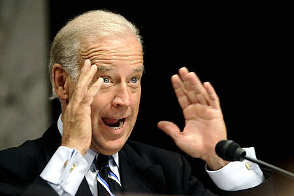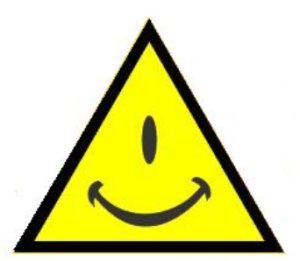I was recently featured as a guest speaker at the Unitarian Universalist church in Pensacola and gave a lecture on agnosticism. The lecture was called “The Map of Agnosticism: Human Explorations of the Universe.” You can listen to or read the lecture below. There is a question and answer session at the end of the audio of the lecture that is not featured in the text below. (*note – the text of the lecture may differ slightly from audio)
(If you have trouble getting the sound to play above, you can alternatively use this link, right click and “save as” to download: http://www.fileden.com/files/2009/8/29/2559011/lecture.mp3)
Good morning, thank you very much for having me. I realize that it’s not every day that someone gets to give a talk on agnosticism in what is ostensibly a church, so the irony and rarity of such a thing is not lost on me. So, I’d like to thank Thom for originally proposing the idea that I give a talk here, and I’d like to thank the church very much for allowing me this opportunity.
Before getting into the meat of the discussion, I thought I’d give you a little bit more background on myself.
I am going to be discussing agnosticism today, but I thought it might be interesting for you to know that I was raised in a family that did attend church somewhat regularly when I was younger. I was baptized at a very early age.
But I was lucky enough to grow up with very open-minded, fairly liberal parents. We actually stopped going to church regularly at one point when I was younger – my father tells me this story, I don’t actually remember it – apparently after Sunday school one day, my brother and I were telling my dad what we had just learned, and apparently we were explaining to my father all the different ways one might go to Hell. This upset him a bit, and he decided that we probably shouldn’t go to church regularly anymore.
My father is someone who probably considers himself to be very spiritual, but not religious. He meditates every day and reads a lot of spiritual books. And my mom would probably consider herself to be somewhere between spiritual and agnostic.
However, there is a very religious tradition in my family. My grandmother on my mom’s side was a pretty devout Christian, and was very active in the First Methodist church here in town, though she was also of the very liberal/progressive sort.
And my grandfather on my mother’s side was actually the dean of the divinity school at Vanderbilt at one time, and wrote several published books on theology and theological ethics, though he was a liberal, and was even involved in the civil rights movement in Nashville back in the 60’s.
I personally rejected religious dogma at a very early age. The concept of what I like to call the Santa Claus version of god, the single creator being in the sky who watches everything you do and judges you, this was something I found very silly around the time I was 12 years old.
But I spent three years at FSU a few years back, and in those first years of college I had what many might call several spiritual experiences. I prefer to characterize them as psycho-neuro-somatic experiences, basically meaning that I have no working model for explaining exactly what took place, but cannot deny that something of a bizarre and psychological nature did occur.
I would love to describe to you in vividly specific detail the nature of those experiences, but I understand enough about what happened and it would simply take too long to describe, suffice to say I consider those experiences to have been monumentally important events in my life which sent me on a very interesting journey of which I am still traversing today.
After that I spent several years experimenting with many different forms of meditation and studying various religions and esoteric practices. I did dabble a tiny bit in the occult at one time, as Thom mentioned, and even still break out my tarot cards on occasion. And while I feel like I learned a tremendous amount, I came out the other side of all of this as an agnostic, for the reasons I am about to describe to you today.
So, that should be enough background to get started…
As we all make our journeys into the mysteries of the universe, these expeditions of the human condition… I feel it is important that we all have an appropriate map for our travels.
So, it is in this spirit that I wanted to discuss agnosticism for a moment today. Because, for me, there is no better map to equip for the human experience, the human voyage, than that of agnosticism.
Etymologically speaking, the term “agnosticism” comes from the Greek word “gnosis,” and literally means “without knowledge,” or to not know. The word itself was actually coined by 19th century English biologist Thomas Henry Huxley when he was looking for a word to describe his own position between religiosity and atheism.
With the current surge in fundamentalism felt both at home of the Christian sort and abroad of the Islamic sort, I feel agnosticism has become increasingly relevant.
But in recent years there has also been a resurging interest in atheism due in no small part to a growing number of popular books on the subject: Richard Dawkins’ The God Delusion, Christopher Hitchens’ God is Not Great, and Sam Harris’ The End of Faith to name a few.
And while part of me is joyous to see an increasing number of people reject religious fundamentalism, my own feelings are that atheism is simply the flip side of that same coin of religiosity.
Richard Dawkins once said that he has more sympathy with the Christian fundamentalist than he does with the agnostic, because he sees agnosticism as the ultimate cop-out, a way of giving up, of not joining the debate.
However, in my opinion, what Dawkins is describing is not agnosticism; what he’s describing is apathy. He apparently seems to completely misunderstand the concept.
I feel Dawkins has it completely backwards. In my opinion, dogmatism of any stripe is the true cop-out. Because for the dogmatist, his journey into the mysteries of the universe is complete. He might as well roll up his map, pack up his things and go home.
The dogmatist has nothing left to explore, nothing more to research, no need to ever pick up another book. To me, it is an arrogant and presumptuous notion of truth that flies in the face of logic and reason.
And considering Dawkins is a biologist, I find this very disturbing, because any good scientist should know that all of science is predicated on the notion of agnosticism. Good science is about having doubt.
The entire scientific method begins with a blank slate, with no assumptions. And then the observations are made, data is collected and theories are formed.
Science is not about truth; it is about exploration. And I feel the same should apply not only to religion, but to all of human knowledge.
We are all explorers of the human condition, charting our path through the universe together. And I feel that is an appropriate place to begin our journey today…
And if I could sum up the main reason for why I adopt an agnostic perspective, why I have no interest in dogma of any kind, it would this: we, as human beings, can never escape our limited ability to receive and process information, and the limited ability we have to communicate such information.
Basically, what we can ascertain about the workings of the universe is directly dictated by the faculties we possess in order to observe the universe.
So, what do I mean by the faculties we possess? I mean the way we receive information as human beings, as organisms, how we perceive external phenomena.
Well, the most obvious would be sensory input: the relationship between sense organs and the nervous system and the brain.
I imagine what immediately comes to mind are the so-called “five senses.” You know, sight, touch, hearing, taste, smell… these are all ways that human beings gather information about the universe.
I would like to quickly point out that there are actually more than five physical senses. And I’m not speaking of anything supernatural here; I’m speaking of accepted science.
In addition to the five senses we all know, humans also feel atmospheric pressure, density in the atmosphere; you can feel this when you’re up in an airplane and your ears pop. We have the ability to temperature, to feel hot and cold, what’s called thermoreception. And we also have a sense of balance, sometimes called the vestibular sense or equilibrioception, which is essentially the ability to perceive the effects of the phenomena of gravity, basically how we orient ourselves within our environment so we don’t fall down. These all ways that human beings gather information about the world.
To better articulate what I’m driving at here, I would like to provide you with an analogy that I’m fond of. Because, even though I would imagine most of what I have said so far is rather self-evident, perhaps, it is not immediately apparent what, if anything, all of this has to do with agnosticism.
The analogy I like to use to convey what my main point is has to do with dogs, canines. Now, our science suggests that dogs, along with many other animals, cannot see the entire range of colors, basically what we as human beings call the visible light portion of the electromagnetic spectrum. In other words, their eyes cannot see all of the colors that our eyes can see. They have what’s called dichromatic sight, so they basically only see in shades of red and green. And it has to do with the biological makeup of their eyes containing more rods than cones, but the point is that they cannot see the full color spectrum as we understand it.
Now, I would like to point out that some people, such as Goethe in his scientific writings, have suggested that even we as human beings cannot see the full range of colors… but let’s not get into that.
So, in the same way that we know a dog cannot see all of the colors available in the universe, there is absolutely no reason to think we as human beings possess the faculties necessary to receive all of the information available in the universe.
Dogs can’t see all the colors that we can see, perhaps we can’t receive all the information that some other organisms can, and in fact, that’s true.
Sticking with the animal kingdom for a moment, some animals do possess sensate abilities that go far beyond what the human possesses biologically. For instance, many species of fish and sharks have what’s called electroreception, which is the ability to detect electrical fields. Many species of birds have magnetoreception, which the ability to detect magnetic fields. And whales, dolphins and bats use echolocation, the ability to detect other objects using sound reflection, like sonar.
And let’s be honest, the only reason we know about these additional sensate perception abilities within the animal kingdom is because our science has caught up with them. We can detect what we call the electromagnetic spectrum because of the advent of scientific instruments that we’ve created.
It’s entirely possible that animals have even further senses of which we are not yet aware because our science hasn’t gotten that far yet.
And it is also possible that we as human beings possess further perception abilities that our science simply cannot detect or explain.
But the point is this: we can only know as much about the universe as is available to us based on our ability to perceive the universe.
We don’t know how much, if anything, there is that we cannot perceive.
And when I say “universe,” I don’t mean the farthest reaches of space that we haven’t found or been to yet; I mean the world external to ourselves, the universe all around us.
We can only know as much as our faculties of receiving information will extend. And there is no reason to think the faculties we as human beings possess are all encompassing in the scope of the universe; there is no reason to think we are capable of comprehending the totality of the existence.
There is no way to know how much exists beyond what our faculties are capable of perceiving. There could be an endless amount of information available in the universe that we simply are not able to receive, much less comprehend.
This idea has been expressed numerous times throughout history by everyone from Descartes to John Locke, David Hume to George Berkeley, all of whom suggested in one way or another that we can never know what an object is, but that we can only know how an object is perceived by the mind.
Well, let’s extend that idea to the entire universe. We can never know what the universe is, we can only how the universe is perceived by our minds, based on the faculties we possess to gather information.
There is no way to know how much there is we cannot know; we can only know what we are capable of knowing.
I feel that fact alone should be more than enough to make anyone a stone-cold agnostic… but let’s take it a step further – and it would probably we helpful to try to keep everything in context as we move along.
Okay, keeping in mind that we can only know as much as our faculties can perceive, after we have collected our data through our observations of the universe, we then have to formulate it into theories and communicate this information through language, verbally or through writing.
When we consider that we are limited by our ability to receive information, we must also acknowledge how inhibited we are by our ability to communicate, how the structure of language itself is restrictive.
Now, we could go on and on about the inadequacies and limitations of language in general, but I think the most obvious limitation of our communication is this: all language is metaphor. Words are not actually the things they represent; they are vague analogous representations which disparately correspond with their counterparts.
An obvious example: if someone is dying of thirst in the desert, you could say, “water, water, water” to him a million times and he will obviously still die of dehydration.
There’s an analogy that I feel expresses this concept very well. It is a phrase coined by the Polish scientist and philosopher Alfred Korzybski. Korzybski developed the field of General Semantics, which is an area of study that deals with the psychological implications of how the structure of language can affect the human organism. He wrote a fascinating, albeit flawed, book which was released in 1933 called Science and Sanity; and in this book he coined the phrase, “The map is not the territory.”
It was a statement, in part, meant to illustrate how abstractions in language can lead to misconceptions in thought: The map is not the territory.
On the most basic level, the idea is very simple. Let’s say you have a map of Florida. You do not have Florida itself; rather, you have a metaphorical representation of Florida. It would be impossible to ever make a complete, all encompassing map of Florida.
On the surface, this is supposed to be an analogy for language: the word is not the actual thing it represents. But, at the macrocosmic level, the analogy speaks to something much more substantive.
What it also speaks to is the process by which we, as human beings, develop our theories and ideas concerning the workings of the universe.
It is a reminder that we can never escape these limitations I’ve been speaking of today. It says that not only are we limited in the way we receive and process information, but that as we organize this information into theories and ideas through language, the information is inherently biased.
It is the product of the human condition. All of the ideas and knowledge we accumulate, whether it be through science, psychology, philosophy, or religion… these are simply the maps we make to chart the human experience.
They are maps of our experiences as seen by our eyes. And they are just that: maps… or models. They are representations of the universe that we have created based on our limited ability to perceive the universe.
I think Robert Anton Wilson perhaps said it best of all when he wrote, “Any grid we use to organize our experience of the world is a model of the world and should not be confused with the world itself.”
I think that sums it up beautifully. The models we make of the universe should never be confused with the universe itself… The models we make of the universe should never be confused with the universe itself.
Because, if you really think about it, when we as human beings study something, no matter what the field of knowledge may be, science, religion, whatever, at the end of the day, we are learning just as much about ourselves as we are the subject of our studies.
We are learning how we receive and process information. We are learning how we make the maps.
Our maps reflect how we see the universe. They reflect the faculties we as human organisms possess in order to receive and process information.
A great example of this, if you’re not familiar with it and would like to do a research project some day, take a look at the history of quantum theory or theoretical physics, and see all the conflicting ideas that have come and gone over the years. You’ll see how the same experiments can produce radically different results depending on who’s doing the observations. You’ll see how some experiments will show a particle behaving as a particle, and some experiments will show a particle behaving as a wave. Then you’ll see how an experiment will show that some theoretical particle does exist and then the same experiment produced by a different group of scientists will show how that particle does not exist. When you look at that stuff you’ll recognize how you are looking just as much inside the human mind as you are the inside of an atom.
And I am in no way meaning to denigrate science or religion.
I especially do not mean to belittle the wonderful discoveries made within the scientific community, as I think they are magnificent and necessary tools for our evolution.
I am simply suggesting that when considering this perspective I am advocating, there are no dogmas to be found in the breadth of human knowledge: there are only models of the universe we as humans make based our ability to perceive the universe.
So, I am not suggesting we let fly agnosticism in the face of religion alone; I am advocating we let fly agnosticism in the face of all of human knowledge.
And, don’t get me wrong: agnosticism itself is just another human map of the universe. However, it is a map that is aware that it is a map. It is a way of studying all the other maps and recognizing them as maps.
And that is why I feel it is the most appropriate map to bring on our journeys into the mysteries of the universe. Because agnosticism is an open-ended map about exploration.
Because ultimately, I am advocating that we not take ourselves too seriously… and that we learn to consider our limited ability to receive and process information as a liberating experience.
For me, there is something very satisfying to realize that no one has a monopoly on the truth, that neither the scientist nor the clergyman has any greater stake or ability to comprehend the universe than I or anyone else… It is very satisfying to realize that we’re all in this together. And that’s what I feel agnosticism really means.
It is a way of letting the air out of all our arrogant and presumptuous notions of truth, of “my god’s better than your god” or “my theory trumps yours.”
It leaves the door open to embrace both science and spirituality without any sense of hubris, allowing us to all take hands and together to continue our human explorations, to forge that journey into the unknown, into the mysteries of the universe, not for the sake of ever finding ultimate truth, but simply for the sake of exploration… and along the way, through our travels, we may help each other make the maps that chart our voyage… as long as we realize they are only maps.
And I can’t think of a better place to make such a statement than here at the Unitarian Universalist Church… Thank you.






